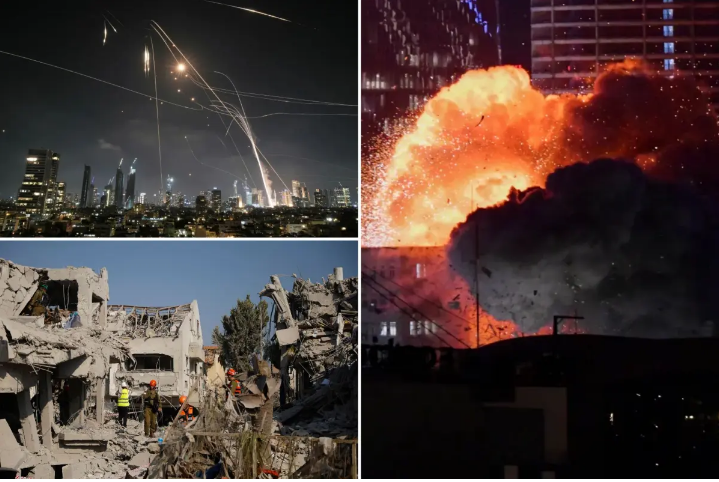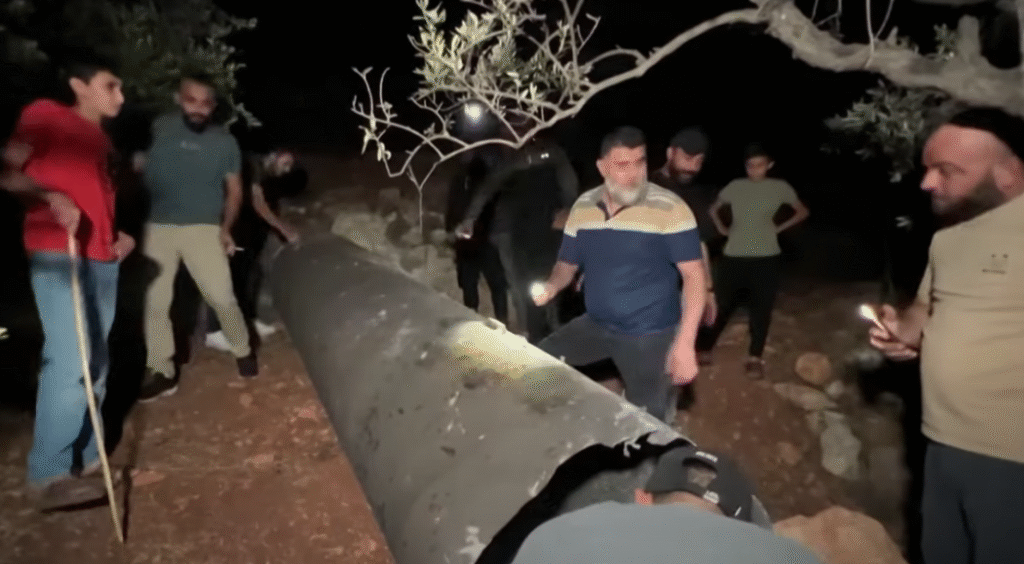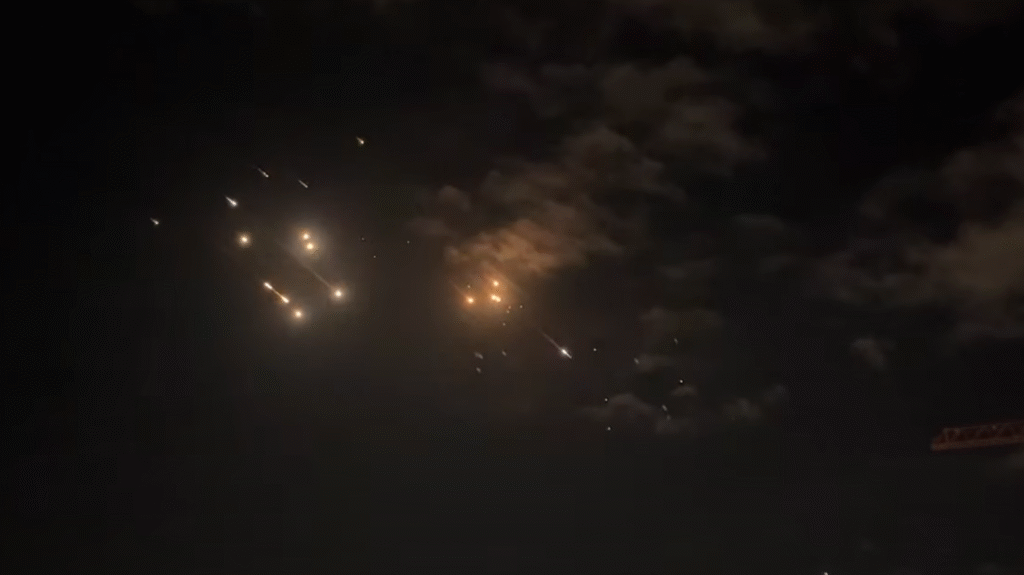
In a terrifying escalation of hostilities that has plagued the Middle East for years, the air above Jerusalem was filled with explosions this week as Israel and Iran engaged in a direct and deadly missile clash. It represents one of the most dangerous flashpoints in years between the two countries, bringing the region closer to a major conflict.
Blaze in the making
The recent clashes began when Iranian-backed militias in Syria and Lebanon launched coordinated rocket attacks on Israeli military installations and border posts. While Israel has consistently claimed that Iran arms and backs such proxies, the incident marked a turning point when missiles linked to Iran’s Revolutionary Guard Corps (IRGC) fell near the northern city of Safed, wounding three soldiers and damaging facilities.
Israel’s military leadership responded quickly and fiercely. Within hours, the Israel Defense Forces (IDF) launched a set of counterattacks deep inside Iranian territory, focusing on military installations in Isfahan and Tabriz, which are widely believed to be linked to Tehran’s missile and drone efforts.

Projectiles over Jerusalem
The situation escalated significantly when medium-range Shehab-type missiles, believed to be Iranian missiles, were launched into central Israel. Although the majority were intercepted by the country’s advanced Iron Dome and air defense systems, a small number breached the defenses and caused explosions over Jerusalem, Tel Aviv, and other metropolitan areas. Although casualties were relatively low due to Israel’s preparedness, the psychological impact was considerable.
The historic city of Jerusalem was filled with the sound of air raid sirens. Schools and businesses closed, as people rushed to bomb shelters as several loud explosions echoed across the Syrian sky. The blasts shattered windows, sparked fires and injured scores of people in falling debris. “I never thought I would see missiles rising above the Old City,” said Maryam Cohen, who lives near Jaffa Gate.”The world seems to be collapsing.”
Iran’s justification and response
Iran’s Supreme Leader Ayatollah Ali Khamenei accused Israel of “crossing the sacred line” by directly attacking Iranian soil. “There are limits to our tolerance,” he warned in a broadcast speech. Israel will face the consequences of its hostility.
Iran claims its actions were defensive and retaliatory, citing Israeli air strikes in Syria and the alleged killing of an Iranian general in Damascus two weeks ago, which Tehran attributes to Mossad. The incident, which included a drone strike on a convoy near the Syrian capital, killed Brigadier General Hossein Amini and sparked widespread outrage in Iran, leading to mass funerals and calls for revenge.
Israel’s strong position
Israeli Prime Minister Benjamin Netanyahu stressed that Israel would not accept attacks on its sovereignty. In an emergency speech late at night, he declared, “We are prepared for any situation.” “Those who endanger the state of Israel will face serious consequences.”
Israel activated thousands of reserve troops and began deploying additional Iron Dome systems in central and northern regions. Defense Minister Yves Gallant said Israel’s operations included cyber measures aimed at blocking parts of Iran’s radar system before it could launch airstrikes.
The IDF targeted Hezbollah positions in southern Lebanon and suspected arms shipments transiting Iraq, widening the reach of the conflict.

Global warnings and diplomatic measures
World leaders expressed concern over the escalating violence. The US president issued a statement advocating “maximum restraint”, while the foreign minister made urgent calls for both Tehran and Jerusalem to de-escalate tensions. The UN Security Council held an emergency meeting but failed to agree on a unanimous statement.
European countries such as France, Germany and Britain condemned the missile exchange and called for an immediate end to hostilities. The EU foreign affairs chief warned that an all-out war between Israel and Iran could escalate into a wider Middle East crisis, saying “this is a dangerous time for both the region and the world.”
Iran’s long-time partners Russia and China called the issue a Western meddling and demanded respect for Iranian sovereignty. Meanwhile, Gulf countries such as Saudi Arabia and the United Arab Emirates are on high alert, worried that the conflict could spill over into their territories.
Civilians caught in the crossfire
As always, it is ordinary people who bear the brunt. In Iran and Israel, families took refuge in shelters at night, while hospitals in Tehran and Jerusalem saw a surge in trauma-related cases. Economic ef



great iran